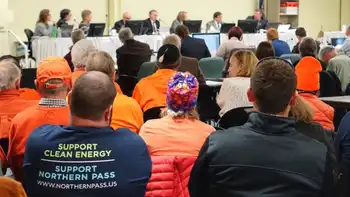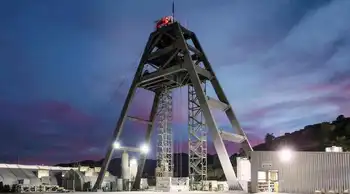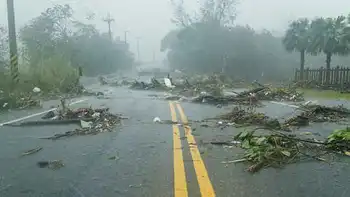Energy debate not likely over
By Topeka Capital-Journal
NFPA 70b Training - Electrical Maintenance
Our customized live online or in‑person group training can be delivered to your staff at your location.

- Live Online
- 12 hours Instructor-led
- Group Training Available
This year's fight ended quietly. House leaders decided against attempting to override Gov. Kathleen Sebelius' latest veto of a bill allowing the two plants and limiting the power of the regulator who has been blocking them.
Supporters never mustered the two-thirds majority in the House necessary to override a veto, no matter what "green" or economic development provisions they tied to the coal plants. They could have tried on May 22 (a Thursday), but that day is reserved for a normally brief adjournment ceremony, when it is tricky getting all members back to the Statehouse.
With Sebelius' clear victory, supporters of the plants had to console themselves with the possibility that the courts might still clear the way for the plants, or that their opponents might suffer during this year's elections.
But the Legislature's debate over energy policy is all but guaranteed to resume next year because of the issues stirred by the fight over the coal plants.
Backers of the coal plants still worry about a growing demand for electricity and believe Kansas must improve its business climate. Many opponents of the plants acknowledge that utilities will have to generate more power but believe addressing global warming is urgent as well.
"If we're serious about coming up with a clean energy plan for the future, we need to start doing it now," said Tom Thompson, a lobbyist for the Sierra Club's state chapter.
Sunflower Electirc Power Corp. wants to expand the two plants outside Holcomb, in Finney County, and sell 86 percent of the new power to two out-of-state electric cooperatives helping it finance the project.
But in October, Rod Bremby, Sebelius' secretary of health and environment, denied Sunflower an air-quality permit, citing the plants' potential carbon dioxide emissions of up to 11 million tons a year. He said the state couldn't ignore the dangers posed by climate change, which many scientists link to man-made greenhouse gas emissions.
Sunflower and many legislators argue that Bremby exceeded his authority, though he cited his emergency powers to protect public health and the environment. His decision led to six separate legal challenges, three of which are before the Kansas Supreme Court.
Many legislators also view Sunflower's project as economic development, and bipartisan majorities approved three bills to clear the way for the plants and restrict the secretary's power. Sebelius vetoed all three.
After the announcement, Earl Watkins Jr., Sunflower's chief executive officer, promised that the utility would continue working with legislators and the governor on policy to expand "all forms" of around-the-clock generating capacity.
He added: "We remain committed to providing reliable electric generation and transmission services."
Meanwhile, Amy Blankenbiller, CEO of the Kansas Chamber, the state's largest business group, said Bremby's decision created uncertainty in Kansas' business climate that still needs to be remedied.
"Confidence in our state's regulatory process is vital for business growth in Kansas," she said.
But if increasing generating capacity and boosting the business climate are issues, so are protecting the environment and moving Kansas away from a heavy reliance on coal-fired power plants. And the debate over Sunflower's project stirred up the latter issues.
Sunflower's allies tried to lure additional votes by including green provisions in their bills. They argued they were making real concessions, though environmentalists saw their proposals as half-hearted and their efforts as cynical.
One provision would have mandated that renewable resources, such as wind, account for 20 percent of most utilities' generating capacity by 2020. Others encouraged conservation programs and solar power.
Later, Sunflower agreed to a mandate that it join a registry to have its greenhouse gases tracked. And its allies endorsed a provision to require the secretary of health and environment to draft rules on limiting CO2 for legislators to consider next year.
After her first veto, Sebelius formed an advisory council to recommend proposals for reducing greenhouse gas emissions. She said she hopes Kansans can collaborate on a comprehensive plan to meet the state's energy demands while protecting the environment.
"I will continue to reach out to energy producers, environmental groups, scientists, business leaders, health experts and Kansas citizens as we work with the Legislature to develop energy policy," she said in a statement.
Legislators haven't ignored energy policy, of course, passing a raft of bills over the past decade.
In 2001, they enacted incentives designed to lure independent power producers to Kansas, and in 2005, they set up a new agency to encourage the construction of transmission lines. This year, Sebelius even signed a bill for encouraging utilities to consider building new nuclear plants.
But both sides in the Sunflower debate believe Kansas still lacks a comprehensive energy policy. And that's likely to make energy an important issue for legislators over the next few years.











